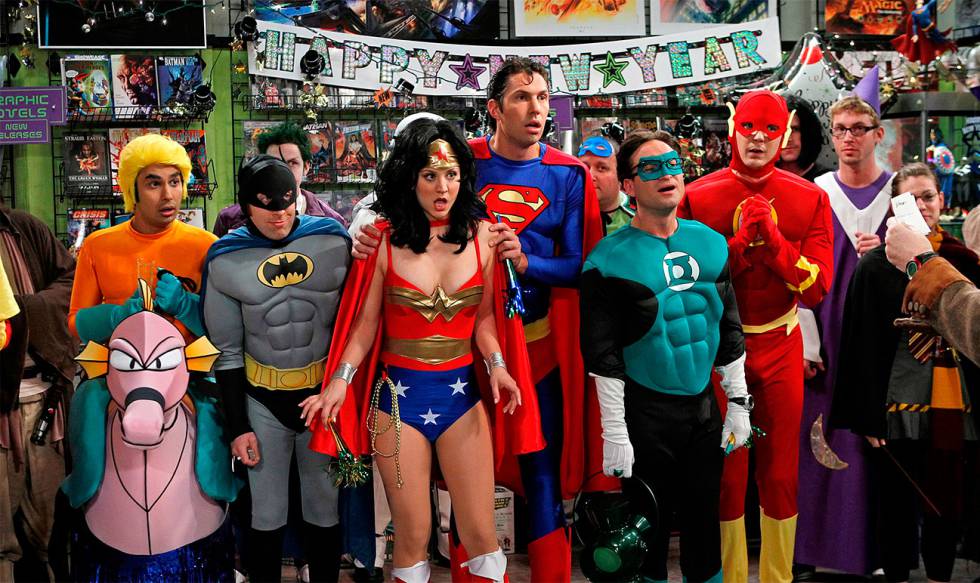Noun geek, plural geek, and in English freaky. It is a Spanish word that defines: freak, weirdo, geek, nerd, guru, otaku, mangaka, comic like, book reader, videogame player, film lover and anyone else whose hobbies are not cars, girls, and soccer.
You may only like movies, but as a “geek” you like all the other things, you look weird, or you act clumsy.
FREAK
Freak which in turn comes from Freak show, the terrible part of the circus shows of yesteryear where they showed people who were deformed or who were not accepted as normal people.
Nowadays, if we call someone a phenomenon it is very insulting and offensive, like calling someone a phenomenon of nature: unnatural. It does not have the same meaning as geek in Spanish.
Freak Show was about a group of unusual people (some physically disabled, others mentally disabled, with genetic disorders, etc.) who were used as exhibits in a circus, as animals.
Freak in English is not an easy thing to call someone, it implies that they are not as good as the others and that something is wrong with them.
The people in this movie and those old Freak shows today would be part of society and accepted, with treatment for mental problems or help for physical challenges.. But of course there would still be someone staring at people on the street.
GEEK
Geeks, in general, refers to people who love video games, science fiction, fantasy books and movies, technology and who have seen all the Star Trek series, etc. So geek could be the translation of geek.
NERD
The nerd is like a geek, but puts more emphasis on the fact that the person studies a lot. They have top marks in their class and are often not so concerned with their image and style.
ANIME FANS AND GEEK SUBCULTURE
If during a family reunion you share your love for Japanese animation with other family members. His answer will be simple but quite revealing: so are you a weirdo, so are you a freak or are you freaky.
–
Puzzled, unmotivated, and without the words to explain why their opinion was wrong, you might want to ask why they think so negatively of anime. However, you will not listen to a reasonable explanation and you will never be able to adequately respond to their criticism.
In Japan, from advertisements to corporate logos, one is literally surrounded by an excess of anime iconography. However, in other countries, anime are rarely seen.
To get in touch with anime, outside the Internet, you often have to look for specialized stores. This lack of exposure means that anime is generally viewed as childish and perverted, while fans are generally associated with social ineptitude and weirdness.
ANIME SUBCULTURE CALLED GEEK
This view is so common and ingrained that an anime subculture called geek, a term derived from the English word “freak,” has emerged.
Closely related to their Japanese counterpart, the infamous otaku, geeks are extreme fans and fans of, among other things, anime. However, geeks have some quirks of their own.
They encompass several other subcultures, including hikers and gamers, and have gained enough momentum to rally in a pride march that takes place every year in many cities, where they can be seen dressed as their favorite characters and marching through the streets. streets. The view is colorful and well… strange. Like Pokémon in the third world.
In essence, geeks are hobbyists whose behavior and tastes differ greatly from those of the mainstream.
They seem to display pride in their marginalization, an attitude easily glamorized by Friki Plaza, a market dedicated to the trade of specialized pop culture paraphernalia in different states of Mexico, for example.
Operating under the motto everything but normal – everything except normal – Friki Plaza encapsulates the sense of youthful abnormality that manifests itself in the geek identity. In Mexico City, Friki Plaza consists of several floors filled with anime, video games, cards, food stalls and other collectibles.
In a way, it is reminiscent of the shops in Akihabara, the well-known district of Tokyo dedicated to the sale of electronic products and pop culture. Commonly known as “electric city”, Akihabara emerged as a point of interest for otaku in the 1980s after it began to satisfy their interests..
Soon he positioned himself at the center of the subculture. Today, it is considered a pilgrimage site for otaku living outside of Japan. However, the differences between the Akihabara and Friki Plaza stores are obvious.

–
In general, the selection at Friki Plaza is quite outdated: titles like Dragon Ball and Pokémon are still in demand, while the top floor hentai (porn) that has become notorious among unsuspecting tourists is noted to be missing. Unlike Akihabara, pirated DVDs have proliferated, as well as cheap and illegal paraphernalia of dubious quality.
–


